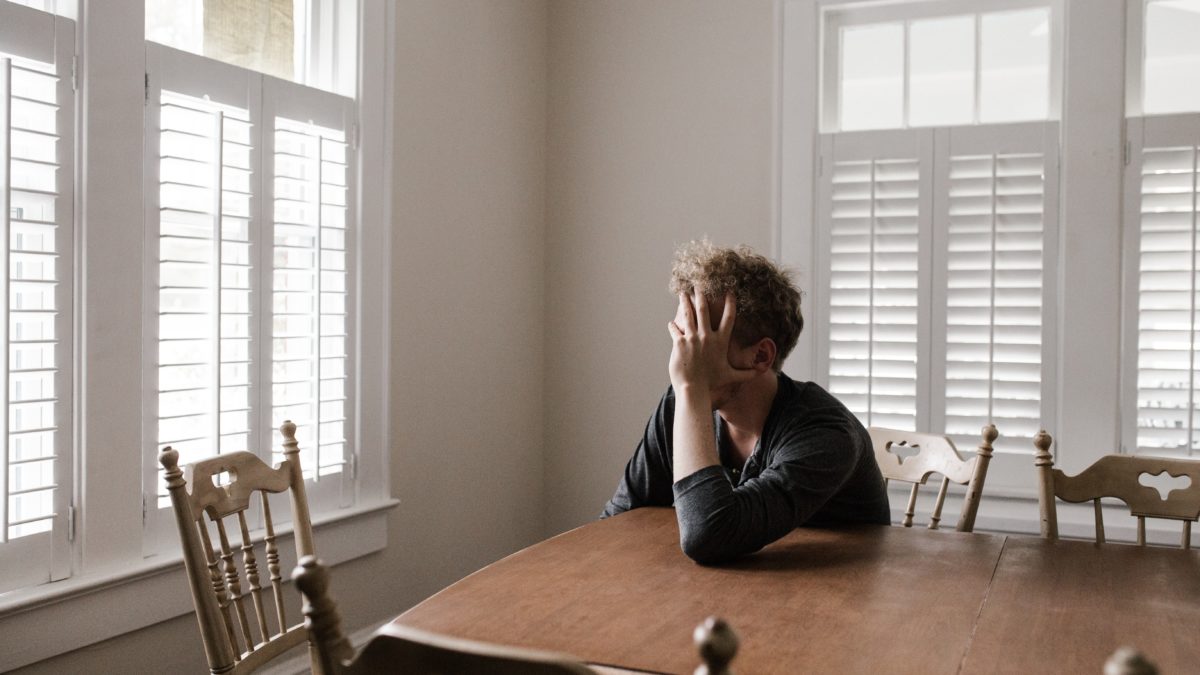5 Ways to Cope with Anxiety as a Parent

The last few years have been challenging, stressful, and confusing for many parents—and if you’ve felt anxious and uncertain about the future, trust that you’re not alone. As a parent, learning to manage and cope with your own anxiety and stress is one of the best ways to make sure you can continue to show up for yourself—and for your children—through it all.
1. Manage stress with mindfulness or meditation
When you are faced with your own anxiety, it can be difficult to stay grounded in the present moment—and to communicate a sense of calm and peace to those near you, including your children. Many parents who suffer from anxiety worry about the future—and about “what ifs.” To avoid your brain getting the best of you, try incorporating mindfulness and meditation techniques into your daily routines.
- Download a meditation app. There are a number of free online meditation apps available for download that can be very helpful in moments of anxiety and worry. A few of our favorites include Headspace, Calm, and Insight Timer.
- Practice deep breathing. Place one hand on your stomach and one hand on your chest. Slowly breathe in to fill up your stomach with air, then slowly breath out.
Although it’s certainly a good idea to practice mindfulness in the moment of feeling anxious or stressed, adding meditation to your daily routine—when you’re not in an anxious moment—can have a massive impact on your overall well-being. More and more research has found that meditation can bring deep inner peace, help you increase self-awareness, reduce negative emotions, and even help manage symptoms of chronic pain, depression, sleep problems, tension headaches, and much more.
2. Know your limits
One important part of learning to cope with your anxiety is gaining a clearer understanding of your own limits and learning to set boundaries. If you feel anxious and overwhelmed by a laundry list of tasks to complete and errands to run, ask yourself how you can support your mental health and emotional well-being.
If there’s a particular situation causing you excessive stress and worry, make a plan in advance: Maybe you can say no to someone asking you to volunteer for a school project, or maybe you can lean on a friend to drop your child off at preschool a few days this week so you can spend some time alone.
3. Learn your triggers
If you feel general anxiety on and off throughout the day or week, it can be helpful to pay attention to your triggers. What prompts feelings of worry and stress? What makes you feel worse and what makes you feel better?
Throughout the pandemic, many parents have reported feelings of stress stemming from a number of factors: not being able to find proper child care, having to take care of the kids while working, and of course, the worry about getting sick.
Try to identify a few specific triggers for your anxiety. Then, determine what you can do to set boundaries around these triggers and prepare for when you might have to face them. For example, if you find yourself becoming increasingly stressed out when reading the news, set boundaries for yourself. You might try giving yourself five or ten minutes glancing through the headlines, but then moving on with the rest of your day.
4. Model good habits for your child
As you navigate your anxiety and stress, communicate some of the feelings and strategies that you’ve used to your children. If your child has moments of anxiety and worry, you can share that you feel the same way sometimes—and then offer strategies to help your child cope.
Having a parent that models healthy habits—including identifying triggers, setting boundaries, and navigating through feelings of anxiety—can be a very helpful example for children as they grow.
5. Find a support system
You are not alone in this—but trying to parent when you’re struggling with your own mental health can feel overwhelming. Reach out to some of your friends and family members and ask for help if you need it. If you’re interested in professional help, consider online counseling or therapy sessions.
- Support groups for military families
In Onslow County, military families face a special set of stressors: Deployment, invisible and visible injuries, and family transitions. Coping with the stress associated with being part of a military family is undoubtedly difficult. Military OneSource offers a number of helpful services, including counseling, tips on parenting through deployment, and more. Learn more here.
NCCARE360 is a comprehensive, powerful resource that helps connect families to important information in the North Carolina community. NCCARE360 provides resources on a number of topics including mental/behavioral health.
Looking for additional support or resources? Contact our team at (910) 938-0336 and we’d be happy to help.
